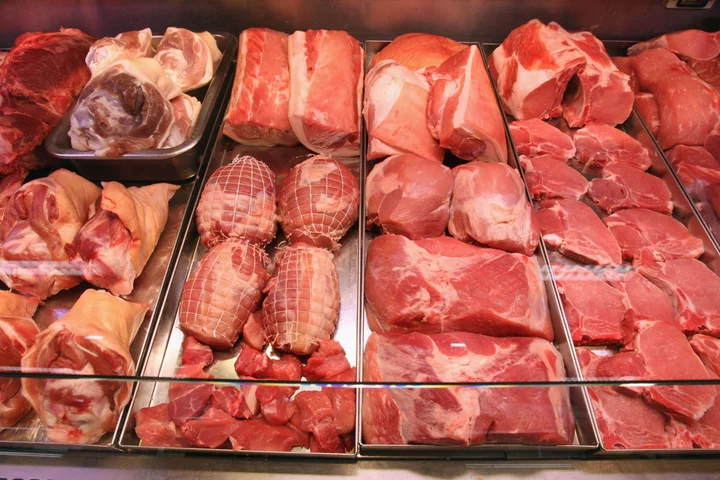
Tick-Borne Red Meat Allergy Could Affect 450,000 Americans
As many as 450,000 Americans could have contracted an allergy to red meat that’s linked to tick bites,
2023-07-28 01:23
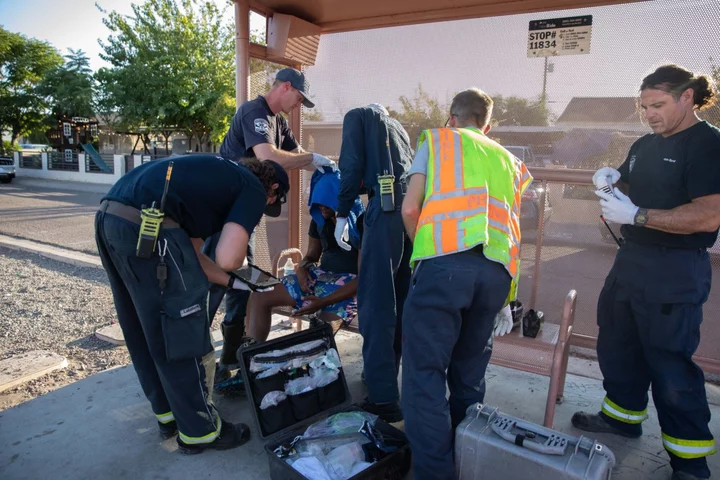
Biden Says Extreme Heat Costing US $100 Billion Annually
President Joe Biden said extreme heat is costing the US $100 billion a year and linked it directly
2023-07-28 01:21
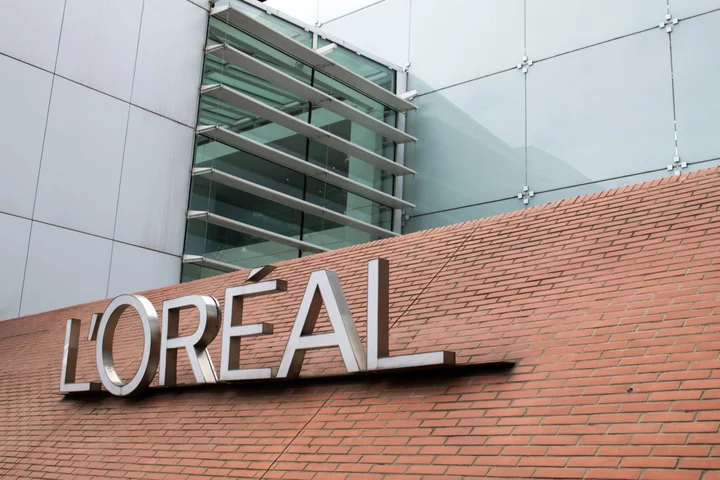
L’Oreal Sales Rise as Europe Makes Up for Weakness Elsewhere
L’Oreal SA sales rose as European customers spent more on lipstick and skincare, offsetting a tepid recovery in
2023-07-28 00:16
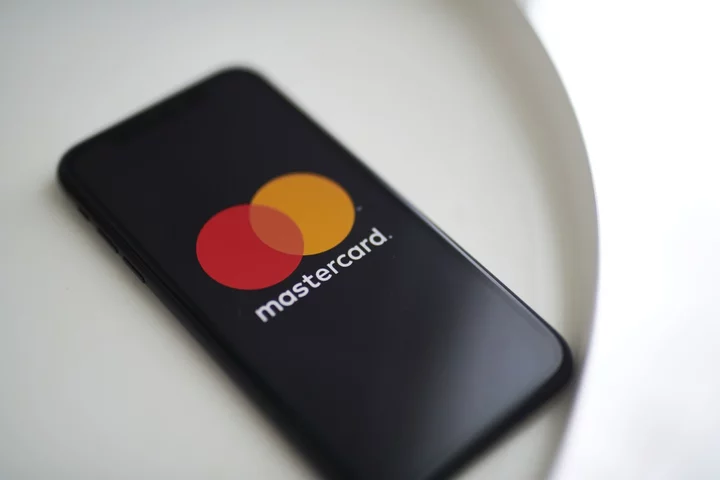
Mastercard Spending Climbs as Consumers Book Overseas Travel
Mastercard Inc.’s card volume rose more than expected as consumers continued to flock to overseas travel destinations and
2023-07-27 22:23

Hertz Beats Earnings Estimates Despite Falling Used-Car Prices
Hertz Global Holdings Inc. reported a per-share profit for the second quarter of 72 cents, beating the consensus
2023-07-27 20:28
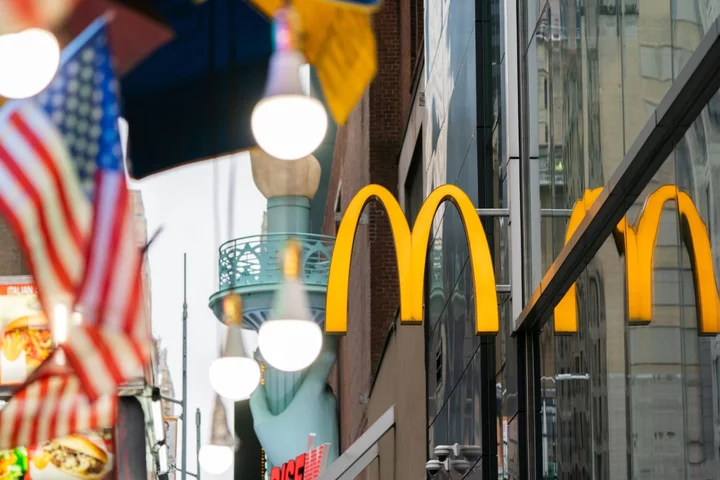
McDonald’s Sales, Profit Beat Estimates as Diners Flock to Chain
McDonald’s Corp. reported second-quarter sales and profits that surpassed analysts’ projections, a sign that it’s still attracting diners
2023-07-27 19:29

Honeywell Profit Tops Expectations on Aerospace, Energy Rebound
Honeywell International Inc.’s profit topped analysts’ expectations as the rebound in air travel and the energy industry drove
2023-07-27 19:28
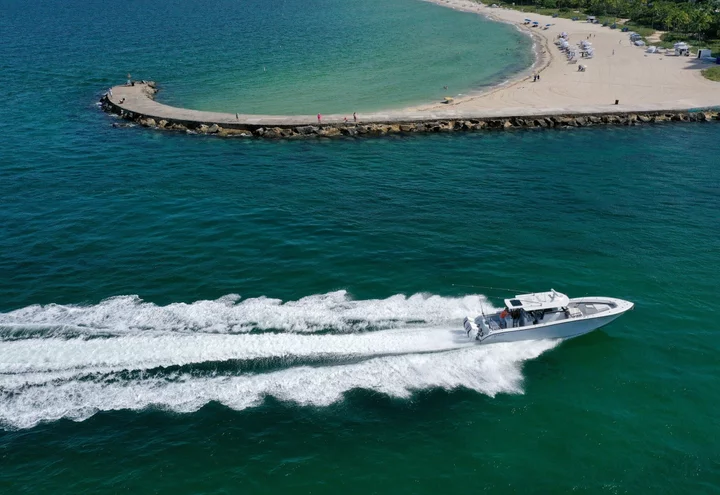
Visa Delays, Divisive Politics Dampen US International Travel Recovery
Tourism has bounced back furiously in the world’s major tourism markets. Spain recovered 86% of its pre-pandemic tourist
2023-07-27 18:59

Southwest Hits Profit Estimates, Faces Continued Rising Costs
Southwest Airlines Co. reported second-quarter earnings that matched Wall Street’s estimates as rising costs countered gains from a
2023-07-27 18:58
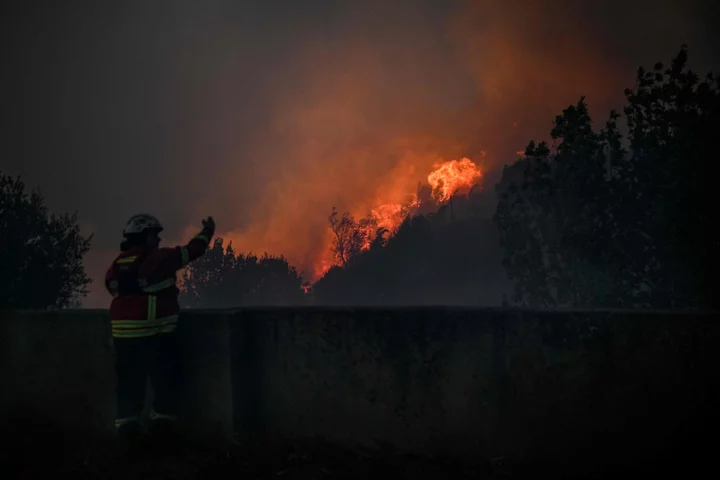
Wildfires in Portugal: Is it safe to travel to Lisbon and Cascais right now?
As wildfires rage across Sicily and Greece, Portugal is the latest Mediterranean country to be hit. A fire broke out on 26 July near the popular coastal holiday spot of Cascais, just 30km west of capital city Lisbon. The blaze started at 5pm in part of the Sintra-Cascais natural park, with strong winds fanning the flames and quickening the spread. Local residents chipped in to help the hundreds of Portuguese firefighters sent to tackle the fires, with some attempting to protect their homes and villages with buckets of water and hosepipes. “The fear now is that it will get to the houses,” local resident Ines Figueiredo told Reuters. “We try to help as much as we can with buckets (of water) ... but it’s not worth much.” Planes were also dispatched to waterbomb the blaze before night fell, alongside more than 600 firefighters. Winds of of up to 60km/h were the biggest obstacle to putting out the fire, according to the mayor of Cascais, Carlos Carreiras. A number of local residents have been evacuated as a precaution. If you’re booked to travel to Portugal, is it still safe to go? And what are your rights if you cancel a holiday? Here’s what we know. Where is affected by the wildfires? So far, the fire is contained to Sintra-Cascais natural park; it hasn’t spread as far as the resort of Cascais, popular with holidaymakers for its beaches and vibrant marina. Some villages within the vicinity of the park have been affected, with nine firefighters and four civilians so far treated for minor injuries and some residents evacuated. Elsewhere, smaller blazes have been reported in the north and centre of Portugal, one of which is near the second city of Porto. The highest level of alert for rural fire danger has been issued for several regions, including holidaymakers’ favourite, Faro in the Algarve. Is it safe to travel to Portugal? So far, the one major blaze has yet to impact on any areas that tourists are likely to visit. Unlike the Greek island of Rhodes, where a number of holidaymakers have had to be evacuated from the worst-affected areas, Portugal’s wildfires won’t affect the overwhelming majority of visitors. The UK Foreign Office (FCDO) advice on Portugal has not been updated to reflect the latest fires; its standard advice reads: “Forest fires can occur anywhere in Portugal. Risk of fires is higher when the weather is hot and dry. Fires have become more common due to drought and high temperatures. “Forest fires are highly dangerous and unpredictable. The Portuguese authorities may evacuate areas and close roads for safety reasons. You should: familiarise yourself with local safety and emergency procedures follow the advice of the Portuguese authorities call the emergency services on 112 if you see a wildfire “Starting a forest fire, even if it is by accident, is illegal in Portugal.” No holidays to Portugal appear to have been cancelled by travel companies at this time. Can I cancel my holiday to Portugal? Cancelling a holiday to Portugal based on the currently very small risk of fire impacting the trip would very likely lead to you losing any money paid so far. While most tour operators are offering customers due to travel to fire-affected parts of Rhodes the option of cancelling and rebooking, the same is not true of Portugal, where the blaze is yet to affect tourist areas. If you’ve booked travel and accommodation separately, rebooking flights in many cases costs as much as buying a whole new ticket. Cancellation costs incurred also won’t be covered by your travel insurance in the vast majority of cases, as the FCDO has not issued an advisory against all “non-essential” travel to Portugal. Read More More than two million expected to head overseas for summer getaway despite heatwave 8 best cities and towns in Portugal to visit on your next holiday Best beaches and seaside holidays in Europe 2023 ‘I cannot hold the pee’: Woman caught urinating on plane cabin floor How to spot a hidden camera in your Airbnb Tourists flying into Greece inferno reveal why they refuse to cancel holiday
2023-07-27 17:53
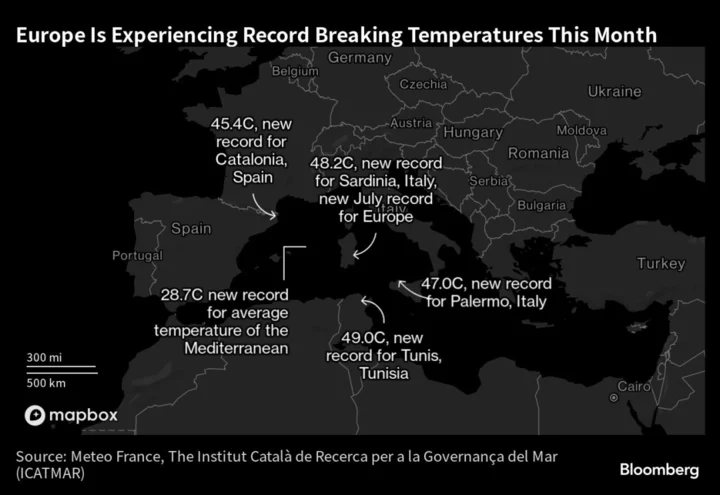
Greece Fights Wildfires as Wind Raises Risk Across Mediterranean
Greece is fighting almost 200 wildfires as strengthening winds present an additional challenge, even as the heat wave
2023-07-27 17:25

The most unhygienic things in your kitchen revealed – and how to get them clean
It’s likely there are countless things in your kitchen which look clean, but actually, they’re filthy. Could your dishcloths be making you sick? When was the last time you washed your tea towels? And do we really need to bleach the sink more than once a month? We asked an expert to find out. Knobs, door handles, and buttons The buttons and dials on your kitchen appliances could be a germ-fest. “People often neglect to clean these areas of the kitchen,” says Danielle Mason, a cleaning content creator – or ‘cleanfluencer’ – who creates tutorials and videos on TikTok and Instagram. “Most of the time, they don’t think it is important, but as you’re commonly handling raw meat and food, it’s extremely important to keep these areas clean, due to cross-contamination. “Always sanitise with a cloth – I like to do this with Zoflora, as it leaves a great smell afterwards, and kills bacteria from dirty fingers.” Cloths If what you clean with isn’t clean, chances are, your kitchen isn’t either. “I always leave my cloth to soak in bleach before going to bed every night,” says Mason. “This enables a new start in the morning with no bacteria. Also, make sure you’re replacing the cloths – I would suggest a new one every two weeks, whilst still bleaching every night. And make sure you’re not using this cloth on anything other than the kitchen, as you do not want to cross-contaminate.” Sponges Mason stresses sponges are unhygienic, as they’re constantly damp and can carry E. coli. “People tend not to use sponges, as they carry so many more germs, and even putting them in the microwave will not kill all of them. Avoid a sponge where possible.” Dish towels Dish towels and tea towels may not be changed anywhere near often enough. “You should have one for every day of the week, as they carry so many bacteria and germs, which get spread across the kitchen. If you’re drying pots and pans, and then wiping down your surfaces, it’s not good,” she says. Chopping boards Chopping boards – particularly wooden ones – could be a haven for bacteria. “You should have a different colour for different types of food, one for meat, fruit, and other foods,” advises Mason. “The best way to clean them is in a dishwasher, as it’s good to get rid of all the germs due to the very high heat. If you don’t like the dishwasher, then boil the kettle water and leave the chopping boards to soak in it. I use a steam cleaner on mine, as it kills 99.9% bacteria and there are no chemicals.” It is best to avoid wooden chopping boards altogether, as these cleaning methods may damage them. Kitchen sink “This is a massive breeder of bacteria and grime; a distinct microbiome is found in sinks. “The plumbing area found beneath sinks revealed microbial communities dominated by a group of bacteria called Proteobacteria. This phylum includes pathogens such as Salmonella and E. coli, which can cause serious disease,” Mason shares. “I’ve always been taught never to wash my hands in the sink, and to never throw dirty water down the sink. You wash your cups and plates in the sink and prepare food, so it should always be kept clean, and nothing from outside the kitchen should cross-contaminate that. For example, never wash your floors and put dirty water in your kitchen sink, always throw it down the toilet.” How do you possibly clean the inside of your sink and drains? “Baking soda and vinegar is the best way to clean your sink out, or bleach, but you must be careful with bleach, as it can stay in the bottom of your sink, depending on the material it’s made of. I clean my sink out every day.” Pipes and cupboards around your sink could be leading you to have a rodent problem. “You can prevent mice and rodents from entering the kitchen by covering any small crevices or cracks. It is also important to repair leaks as soon as they happen, as they can come through the pipes,” she says. Fridges “Deep clean [your fridge] every two months. A normal cleaning – the wiping of shelves – should be done every other day with soapy water. For any bad smells, use baking soda, which will absorb the smell from the fridge,” Mason continues. “The fridge is a breeding ground for salmonella, E. Coli and other bacteria.” Bins Where you throw your waste away could be a breeding ground for germs. “Make sure you keep [outdoor] rubbish bins away from your house, and make sure you empty your bin as soon as it’s full,” advises Mason. “I personally do not keep a bin in the kitchen, I use a bag and I take that out by the end of the day, but if you are using a bin, make sure you bleach it with hot kettle water, to keep it smelling fresh.” Read More Charity boss speaks out over ‘traumatic’ encounter with royal aide Ukraine war’s heaviest fight rages in east - follow live Laura Whitmore: I feel unsafe as a woman Meet the professional cuddler charging £70-an-hour to hug ‘the big spoons in life’ New warnings about ‘concerning’ rise in at-home cosmetic dentistry
2023-07-27 14:19
